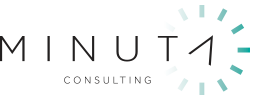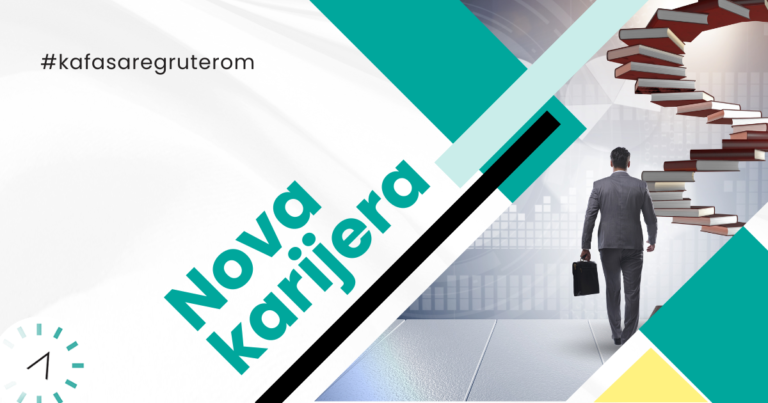In most cases, a job interview involves recognizing and highlighting our positive qualities, skills, and achievements and generally flows pleasantly for both parties. However, the interviewer often touches on our darker side, which we usually do not like to confront—our shortcomings, or weaknesses.
A reader of my blog wrote me the following:
"Hi. I've been following your work for a few months, and I'm reaching out now because I need help. I have a job interview scheduled on a cruise ship, and the agent who prepared us for the interview emphasized several times that we might be asked, 'What is your biggest weakness?' I've read something about desirable and undesirable answers, but could you help me and tell me what the right answer to this question is? Thank you."
I'm sorry to disappoint you, but there is no correct, universal answer!
Let's go step by step…
WHAT LIES BEHIND THIS QUESTION?
This is one of the most dreaded questions in a job interview because—who wants to talk about their weaknesses when their goal is to showcase their strengths? Although it seems like a trick question, this question holds great power.
Tajna leži u tome KAKO odgovoriš na ovo pitanje, a ne ŠTA odgovoriš!
Essentially, an employer who asks this question is thinking about one of these two things:
- Can you perform the job properly?
- Will you be able to fit into the organization?
On the other hand, you're probably telling yourself that you mustn't say anything that could eliminate you from the process, and then you come up with something brilliant: you'll turn your strength into a weakness! And, all happy, you sing out: "MY BIGGEST WEAKNESS IS PERFECTIONISM!"

While you rub your hands together, pleased with your victory, you fail to notice that your interviewer, nodding and with a slight smile, notes that they expected such an answer. Deja vu!
This is one of the most common responses candidates give to this question, and the most frequently mentioned weaknesses include stubbornness, persistence, workaholism, and a large number who "can't think of any weaknesses"...
I don’t buy it.
When asking this question, the employer is assessing whether you possess three qualities that are important to them:
- HOW SELF-AWARE YOU ARE: Your answer should demonstrate to the employer how self-aware and self-critical you are, and it should indicate whether and how you plan to work on your weaknesses. Therefore, you should never say that you can't think of any weaknesses!
- HOW HONEST YOU ARE: I think it's unnecessary to even discuss this topic! If you get the job, the truth will eventually come out, and no one wants to work with people who weren't honest from the start.
- ARE YOU ABLE TO FIT IN: The employer seeks to assess whether other people in the organization can accept your flaw or if it will hinder them from functioning normally at work. And of course, whether that flaw will jeopardize the business of their company.
Although this is one of the most boring and common interview questions, it seems like candidates are never quite prepared enough to give an answer. And then in that moment, they inadvertently state that they can't think of a single flaw!
OH YES, YOU HAVE FLAWS!
I have them too. And that's completely ok.
You can learn and grow only when you accept that you're not perfect, and neither is anyone else (yet we still judge each other for those small imperfections that everyone carries as their mark...).
If you don't know or are unsure how to identify your weaknesses, I suggest you conduct a SWOT analysis of yourself. In this analysis, you'll analyze your strengths and weaknesses (internal factors), as well as opportunities and threats (external factors). Here's an example that might help you with that.

It's crucial to identify and list in the "Weaknesses" field those weaknesses that have "defined" you in the past and that you have since overcome. Now, let's explore why.
WHAT NOW?
Carefully consider all your weaknesses, and emphasize those you have learned to overcome.
For which past shortcomings have you received criticism from family members, bosses, or colleagues? Which areas of your work have your previous collaborators identified as weaknesses that need improvement? Lastly, how did you manage to enhance or overcome them?
However, be cautious—you must not choose a flaw that would disqualify you, even if you've learned how to deal with it and perhaps turned it into a virtue. For example, if you're applying for a recruiter or sales position, you shouldn't list lack of negotiation skills as your flaw, even if you genuinely don't possess them at the moment!
REMEMBER: The skill you mention was (or still is) a type of behavior that has been repeated in the past (a habit) but which you have changed, not a part of your personality that is very difficult to influence and change!
HOW TO ANSWER THIS QUESTION?
Your answer should consist of two parts:
- Admission that you have a specific weakness or flaw, and
- Recovery from that weakness—how you managed yourself to mitigate the impact of that flaw. Did you have a plan that guided your efforts? What virtue did you develop while working on your shortcomings?
Make sure to present these weaknesses in the best light possible, maintaining optimism and positivity. Most importantly, avoid speaking negatively about your previous employer, as you've learned something valuable from them, haven't you?
WHAT DO YOU NEED TO BE AWARE OF?
There are 4 factors that will affect your answer to this question to make it appear prepared, thoughtful, and a confident indicator that you are the right candidate for this job:
- Your answer must be honest. You must consider things that have the potential to compromise your professional effectiveness.
- Your answer should demonstrate that you have the capacity to recognize your shortcomings.. Well, we all know that everyone has weaknesses, but not everyone is capable of recognizing them, which is the first step towards improvement.
- Your response indicates whether you are capable of taking the first steps towards improving that weakness. Since we've established that everyone has weaknesses, the question then arises: will you sit and lament your shortcomings, or will you take responsibility and improve upon them?
- Your response shouldn't just list your weaknesses—it should tell a story.
WHAT WOULD BE AN EXAMPLE?
Here is an example that will make everything clearer for you:
ADMISSION: "What is my biggest weakness? Well, some people might consider it a weakness that I don't have enough experience in this field. However, as someone who learns quickly, I am very open to new experiences."
RECOVERY: "As I see it, in this company, I will have the opportunity to learn from the best about how things are done YOUR way, so previous experience from another company is not crucial to me. There is always much I can learn, and new challenges in a new role can only further stimulate me and enhance my learning abilities. Additionally, I would mention that my previous employers have always praised and valued my dedication to work. I am someone who dislikes being late or slacking off, and I'm sure you'll notice that right away."
See? It's not so difficult.
Keep in mind, regardless of the strategy you use, your ultimate goal is to present an answer that won't jeopardize your potential or disqualify you from the selection process. If you're unsure whether you've chosen a too negative trait, consider the employer's criteria and put yourself in their shoes.
To practice, try giving a different answer each time until you feel comfortable talking about your weaknesses. Make sure you sound relaxed and confident during job interviews.
GOOD LUCK! 🙂





